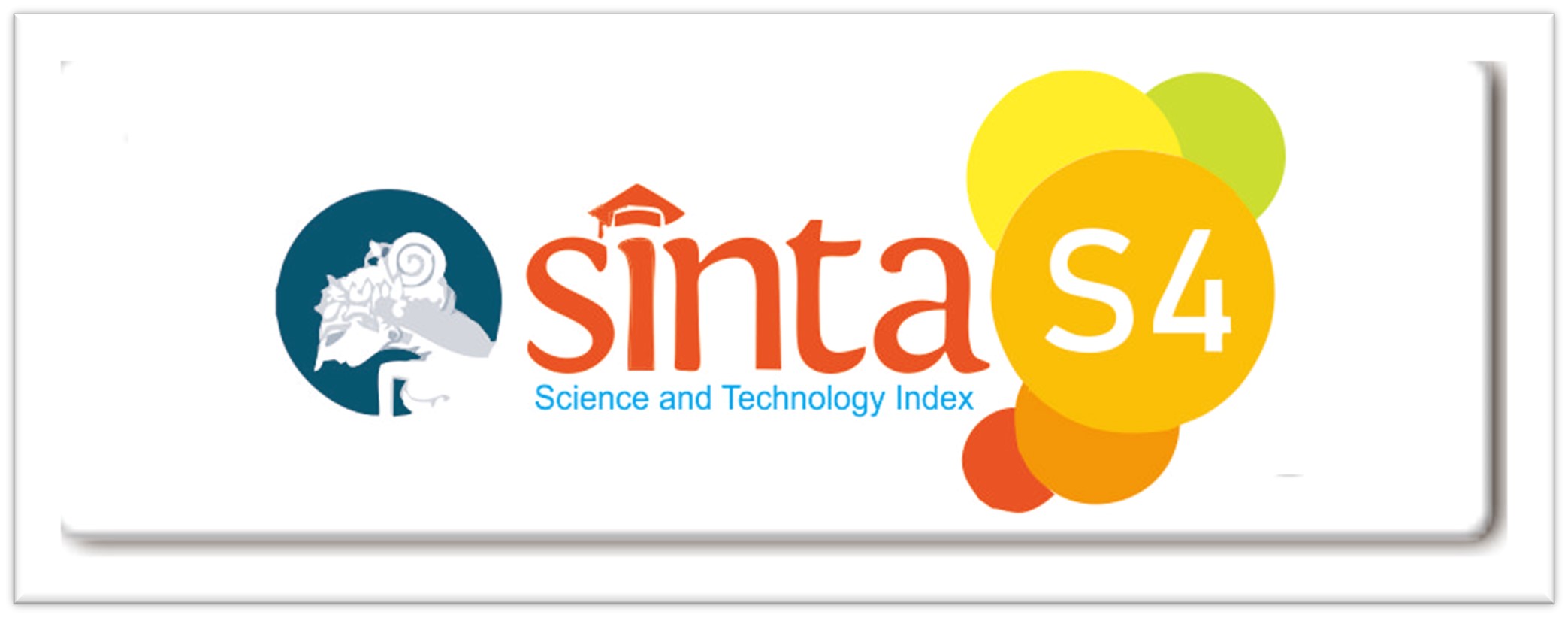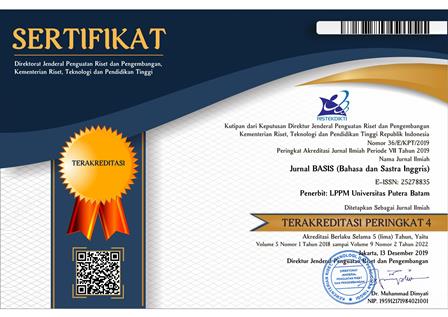SCHIZOPHRENIA SYMPTOMS ACUTE IN TEDDY ALIAS ANDREW IN THE “SHUTTER ISLAND” NOVEL BY DENNIS LEHANE
DOI:
https://doi.org/10.33884/basisupb.v6i2.1422Keywords:
Skizofrenia, Delusi, Halusinasi, Pendekatan Psikoanalisis. Dan Psikodrama.Abstract
This research discussed about schizophrenia symptoms in Teddy alias Andrew Laedis that was acute and dangerous and also discussed the psychodrama treatment for Andrew. The main character is described to have a dangerous illness which is schizophrenia due to get from his traumatic events in world of war. Some of traumatic event that Andrew is experienced actually like when Andrew killed hundred soldier during the war in Dachau, his guilt because he did not bring his wife, Dolores to psychiatrists then unpredictable his wife killed her three children and drowning her child in a pond and regret for the rest of his life who was forced to kill his beloved wife until die and he finally lost all his family. Andrew cannot escape from the reality and without unconsciously he became experiencing mental disorder. The fictional story written by Dennis Lehane (2003.This novel was using the theory of psychoanalysis approach by Sigmund Freud. By using the concept of Sigmund's theory this research examined the symptoms of acute schizophrenia in Teddy alias Andrew's character which showed that his id is more dominant than his ego and the superego did not almost non-existent. Andrew points out three types of self defense mechanisms, namely, denial projections, regression and displacement. Meanwhile, the process of psychiatric recovery treatment by Dr. Cawley is used a psychodrama.
References
Cruz, A., Sales, C. M. D., Alves, P., & Moita, G. (2018). The core techniques of Morenian psychodrama : A systematic review of literature. Frontier in Psychology, 9(July), 1–11. https://doi.org/10.3389/fpsyg.2018.01263
Cubukcu, F. (2012). Effects of trauma in shutter island. Psychiatry Research, 4(9). https://doi.org/10.2019/apcub73215072
Dennis Lehane. (2003). Shutter island. Unitad Kingdom: Bantam Press.
Duane, S. (2017). Theories of personality. Psychological Review, 86(9). https://doi.org/10.5406/amerjpsyc.126.2.0155
Fang, X., Chen, Y., Wang, Y., Ren, J., & Zhang, C. (2019). Progress in depressive symptoms in schizophrenia patients : A possible relationship between SIRT1 and BDNF. Progress in Neuropsychopharmacology & Biological Psychiatry, 95(June), 1–7. https://doi.org/10.1016/j.pnpbp.2019.109673
Freud, Anna. (1937). Ego and the mechanisms of defense. London: karnac Books.
Freud, Sigmund. (1933). New introductory lectures on psychoanalysis. New York: Norton Books.
Gofur. (2015). Schizophrenia on the main character of the shutter island film based on Sigmund Freud’s psychoanalysis theory. Psychological Science in the Public Street, 1(vii), 1–15. https://doi.org/10.1016/j.paid.2015.01.086
Hart, M., & Lewine, R. (2018). Rethinking thought disorder. Schizophrenia Bulletin Vol., 43(3), 1–10. https://doi.org/10.1093/schbul/sbx003
Kiran, C., & Chaudhury, S. (2017). Understanding delusions. Industrial Psychiatry Journal •, 18(1), 1–18. https://doi.org/10.4103/0972-6748.57851
Lapsley, D. K., & Stey, P. C. (2011). Id, ego, and superego. Encyclopedia of Human Behavior, 2nd Ed, 11(vii), 1–9. https://doi.org/DOI 10.1007/9988-3-319-118yuan7
Ratna, N. K. (2015). Teori, Metode, dan Teknik Penelitian Sastra. Yogyakarta: Pustaka Pelajar.
Sudaryanto. (2015). Metode dan aneka teknik analisis bahasa. Yogyakarta: Sanata Darma University Press.
Telles-correia, D., Moreira, A. L., & Gonçalves, J. S. (2015). Hallucinations and related concepts — their conceptual. Frontier in Psychology, 6(July), 1–9. https://doi.org/10.3389/fpsyg.2015.00991
Watkins, A., John, A., Bradshaw, C., Jones, J., & Jones, M. (2019). Schizophrenia in high risk opioid users : A short communication on an autopsy study. Psychiatry Research, 276(February), 112–114. https://doi.org/10.1016/j.psychres.2019.04.026
Downloads
Published
Issue
Section
License













 JURNAL BASIS (BAHASA DAN SASTRA INGGRIS)
JURNAL BASIS (BAHASA DAN SASTRA INGGRIS)
